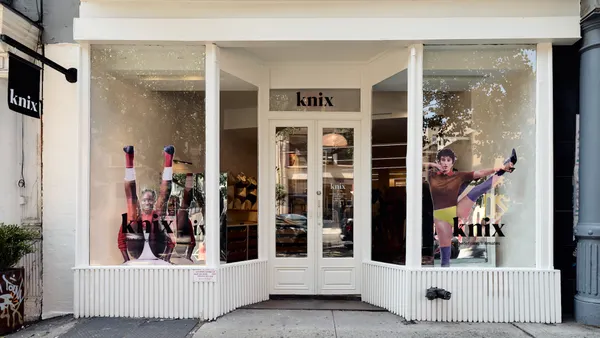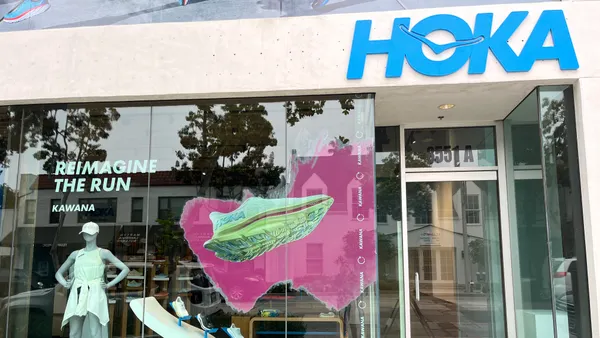Dive Brief:
-
Sneaker brand On on Tuesday reported that Q3 net sales rose 32.3% to 635.8 million Swiss francs (about $721 million at press time), with direct-to-consumer sales up 49.8% to 246.7 million Swiss francs and wholesale up 23.2% to 389.1 million Swiss francs.
-
Gross profit margin expanded to 60.6% from 59.9% a year ago, the highest since the company went public in September 2021, “driven by growth in the DTC channel and a continued disciplined approach to full-price sales.” Net income fell by nearly 50% to 30.5 million Swiss francs.
-
To take advantage of what the company described as “exceptional growth” in Asia — net sales in the Asia-Pacific region surged 79.3% — executives on Tuesday told analysts that it will open two flagship stores in China. Net sales rose 15.1% in Europe, the Middle East and Africa and 34.1% in the Americas.
Dive Insight:
On posted record sales in the third quarter, co-founder and Executive co-Chairman Caspar Coppetti said in a statement Tuesday. The Paris Olympics helped fuel a surge in global brand awareness in recent months, and celebrity partnerships, notably with Zendaya, plus “strategic store openings in key cities around the world” will further that, per the company’s press release.
Its momentum bodes well for the holiday quarter as well as long term, executives said on a Tuesday morning earnings call. Jane Hali & Associates analysts said the brand “has runway for growth globally across genders, children’s, additional categories, and vertical stores,” noting that its product is “resonating with consumers, particularly with men and the running community” and is poised to gain among younger women thanks to “partnerships with athletes, celebrities and influencers.”
“Importantly, [On] is continually growing and evolving its footwear range,” Jane Hali & Associates said in a preview note. “We see this collection as well-balanced and sufficiently diverse to meet a variety of sports and lifestyle needs. Although the apparel and accessories categories are small, the product continues to improve.”
But higher-than-anticipated selling, general and administrative costs, (probably marketing expenses) plus currency headwinds took a bite out of profits, according to a client note from William Blair analysts led by Dylan Carden. And some investors will likely look askance at the decision to downplay wholesale, they also said.
Still, those analysts see the company’s performance despite the currency obstacle “as the headline here.”















